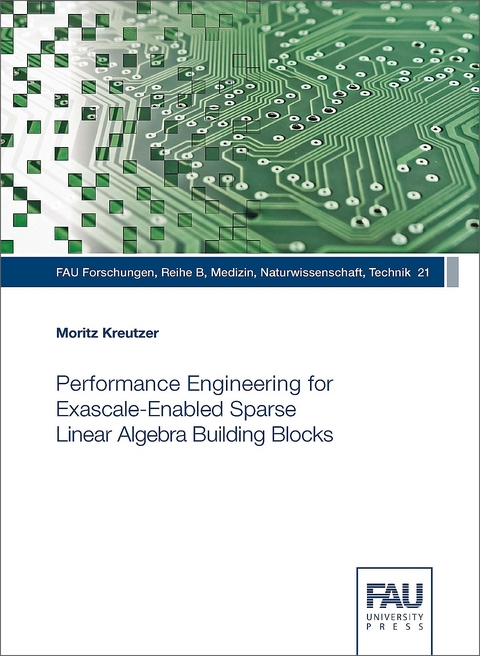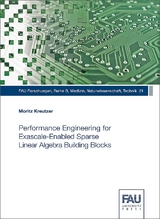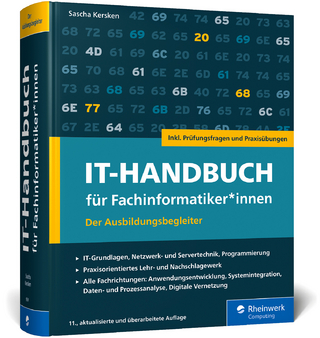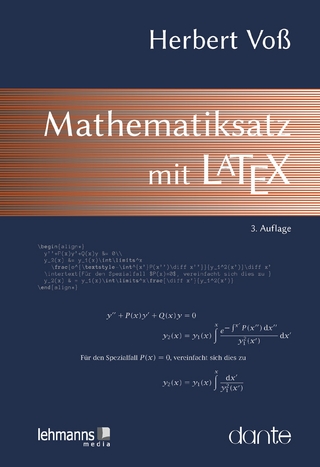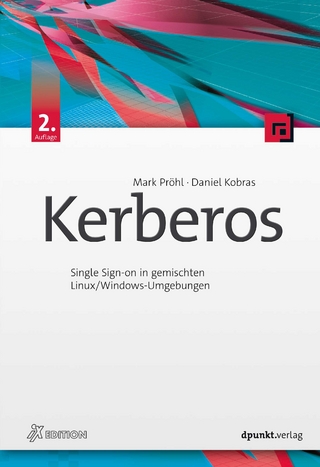Performance Engineering for Exascale-Enabled Sparse Linear Algebra Building Blocks
Seiten
2018
Fau University Press (Verlag)
978-3-96147-103-4 (ISBN)
Fau University Press (Verlag)
978-3-96147-103-4 (ISBN)
The increasing demand for solving larger and more complex problems in computational
science and engineering is a major driving factor to deploy computer systems with
ever-advancing performance capabilities. To increase the available performance, modern
HPC platforms come with multiple levels of parallelism, complex memory hierarchies,
heterogeneous architectures, and extreme scales. To match the need for sustainable and
efficient software under these premises, special value has to be attached to the inherent
challenges like efficiency on all scales and performance portability across heterogeneous
architectures.
This work addresses the development of high-performance scientific software for sparse
linear algebra, which is an important field of research and forms the foundation of many
applications of computational science and engineering, with a special focus on sparse
eigenvalue solvers on current and future supercomputers. Consequent employment of
performance models as well as a holistic view on applications, algorithms, and hardware
architectures enable the creation of basic computational building blocks, custom compute
kernels, and optimized algorithmic formulations with provably high efficiency.
To demonstrate the applicability of the developed software components, full-application
performance of selected sparse eigenvalue solvers for real-world problems on some of
the world‘s largest supercomputers with completely different hardware architectures –
including homogeneous multi-core CPU clusters, GPU-accelerated clusters, and selfhosted
many-core CPU clusters – is presented.
science and engineering is a major driving factor to deploy computer systems with
ever-advancing performance capabilities. To increase the available performance, modern
HPC platforms come with multiple levels of parallelism, complex memory hierarchies,
heterogeneous architectures, and extreme scales. To match the need for sustainable and
efficient software under these premises, special value has to be attached to the inherent
challenges like efficiency on all scales and performance portability across heterogeneous
architectures.
This work addresses the development of high-performance scientific software for sparse
linear algebra, which is an important field of research and forms the foundation of many
applications of computational science and engineering, with a special focus on sparse
eigenvalue solvers on current and future supercomputers. Consequent employment of
performance models as well as a holistic view on applications, algorithms, and hardware
architectures enable the creation of basic computational building blocks, custom compute
kernels, and optimized algorithmic formulations with provably high efficiency.
To demonstrate the applicability of the developed software components, full-application
performance of selected sparse eigenvalue solvers for real-world problems on some of
the world‘s largest supercomputers with completely different hardware architectures –
including homogeneous multi-core CPU clusters, GPU-accelerated clusters, and selfhosted
many-core CPU clusters – is presented.
| Erscheinungsdatum | 12.07.2018 |
|---|---|
| Reihe/Serie | FAU Forschungen : Reihe B ; 21 |
| Verlagsort | Erlangen |
| Sprache | englisch |
| Maße | 170 x 240 mm |
| Gewicht | 620 g |
| Themenwelt | Mathematik / Informatik ► Informatik ► Betriebssysteme / Server |
| Schlagworte | Computerarchitektur • Grafikprozessor • Hochleistungsrechnen • Leistungssteigerung • Matrizenrechnung • Software |
| ISBN-10 | 3-96147-103-7 / 3961471037 |
| ISBN-13 | 978-3-96147-103-4 / 9783961471034 |
| Zustand | Neuware |
| Haben Sie eine Frage zum Produkt? |
Mehr entdecken
aus dem Bereich
aus dem Bereich
der Ausbildungsbegleiter
Buch | Hardcover (2023)
Rheinwerk (Verlag)
39,90 €
Single Sign-On in gemischten Linux/Windows-Umgebungen
Buch | Hardcover (2022)
dpunkt (Verlag)
52,90 €
